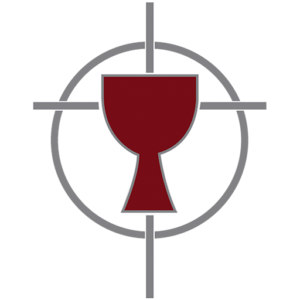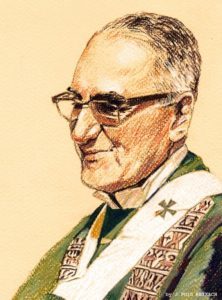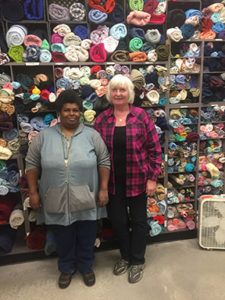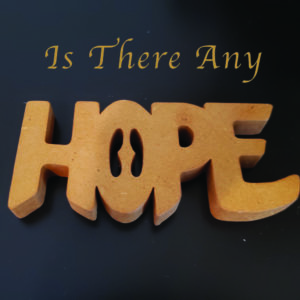Jun 1, 2020
by Gabino Zavala, Justice and Peace Director
 As a nation, we are dealing with parallel plagues. We are still living with the COVID-19 pandemic which has taken the lives of over 100,000 people while George Floyd lost his life at the hands of Minneapolis Police officers while pleading with them that he could not breathe, the death of yet another person of color. George Floyd did not deserve to die because he was black. His death was senseless and brutal. We have a long history of racial injustice boiling over. We need to acknowledge the deeper and ongoing reality of racism toward people of color. We are all connected. What happens to one affects us all.
As a nation, we are dealing with parallel plagues. We are still living with the COVID-19 pandemic which has taken the lives of over 100,000 people while George Floyd lost his life at the hands of Minneapolis Police officers while pleading with them that he could not breathe, the death of yet another person of color. George Floyd did not deserve to die because he was black. His death was senseless and brutal. We have a long history of racial injustice boiling over. We need to acknowledge the deeper and ongoing reality of racism toward people of color. We are all connected. What happens to one affects us all.
The protests that we are seeing in our cities reflect the justified anger and frustration of many. How much humiliation, inequality, and indignity can someone take merely because of their race or the color of their skin? As a nation, we support peaceful demonstrations calling attention to injustices. In this case, the injustice is the sin of racism. Though we understand that anger can escalate into violence, we cannot condone it. Violence that damages and destroys the property of innocent shopkeepers and business owners, causing death and injury to peaceful participants and to law enforcement persons is not acceptable.
In a talk given at Stanford University in 1967 titled “The Other America,” Dr. Martin Luther King, Jr. said, “A riot is the language of the unheard.” Are we still not hearing? Do we not listen?
This past weekend we celebrated the Feast of Pentecost. Let us pray and work toward a new outpouring of the Holy Spirit. Let us pray for a desire to rid ourselves of the harm caused by racism and prejudice. Let us pray that the Spirit of truth touch all of us. Let us pray that our broken criminal justice and law enforcement systems be changed. Let us continue to pray for racial justice.
Apr 8, 2020
 from Gabino Zavala, Justice and Peace Director
from Gabino Zavala, Justice and Peace Director
Today our Jewish sisters and brothers begin the celebration of Passover as we prepare to celebrate Holy Thursday. Due to the exceptional challenges brought about by the Covid-19 pandemic, this Triduum will be like no other experience of Holy Week in our lifetime. As we shelter in place and practice physical distancing, we reconsider our spiritual practices and continue to find creative ways to reflect, pray and make these days holy as we continue to be church.
I am attaching some appropriate prayers for you that might help you celebrate these holiest days.
A Prayer in a Time of Pandemic
Living Water Ritual
Stations of the Cross: Overcoming Racism
Mar 24, 2020
by Fr. Joe Nassal, C.PP.S.
 “I don’t believe in death without resurrection.”
“I don’t believe in death without resurrection.”
– St. Oscar Romero
It is a strange new world. Almost every story on National Public Radio is about the pandemic and the medical, economic, and social problems it creates. As I reflect by the window in week two of the “shelter in place” order in the Bay Area that is now extended throughout the state and most of the nation, the trash truck collects the garbage at the apartment complex across the street. While many are out of work or working from home because of social distancing, trash and recycling companies are probably busier than usual because more people are staying at home. Obviously, doctors, nurses, medical personnel, and first responders are the busiest as they try to make less work for another group who are busier than usual, morticians and gravediggers.
So, on the 40th anniversary of the assassination of Archbishop Oscar Romero, it is good to remember that we don’t believe in death without resurrection.
A virus of violence killed St. Oscar. Before this pandemic took hold of the world, we had an epidemic of gun violence in this country; a pandemic of oppression and injustice especially toward refugees and immigrants. Romero was killed because he became a voice against the virus of violence that claimed the lives of the poor in El Salvador.
He was denied canonization for years because there were those who felt his death was caused for political reasons rather than rooted in the gospel nonviolence of Jesus. The church finally recognized that when the rule of law in a country is unjust and the poor are being persecuted, the Sermon on the Mount and the witness of Jesus becomes political. Fidelity to gospel nonviolence leads to the cross stained with the precious blood of Christ.
Forty years ago, Archbishop Romero’s blood poured out upon the altar where he was celebrating Mass, martyred for living his faith and giving voice to the cries of the poor. “They can kill me,” he said, “but they cannot kill the voice of justice.”
Now the focus of the nation and the world is on the corona virus as it should be. But the virus of violence will continue unless those who are rooted in gospel values raise their voices against the culture of hate, indifference, and death.
As with other crises we have faced, we are at our best when the news of the world is the worst. The hashtag now is “alone together”—though we are sheltering in place and staying at home, there is a sense of solidarity that we are all in this together. May it also be so in attacking the virus of violence.
As we meet in prayer across the miles, St. Oscar Romero, pray for us.
Jan 8, 2020
 PBRS has recently joined in collaboration with Hope Faith—Homeless Assistance Campus located in downtown Kansas City and will be assisting in case management. The concept of collaborating and connecting with other social service providers to provide the best services for those in need is the common denominator for PBRS and Hope Faith.
PBRS has recently joined in collaboration with Hope Faith—Homeless Assistance Campus located in downtown Kansas City and will be assisting in case management. The concept of collaborating and connecting with other social service providers to provide the best services for those in need is the common denominator for PBRS and Hope Faith.
Hope Faith’s mission is to serve the homeless in Kansas City. According to Programs and Partnership Director Alfredo Palaco, the organization best fulfills its mission when it partners with other social service organizations in the metro area. Because every client that they serve has their own unique challenges and barriers, by working with area agencies and organizations Hope Faith can provide a wider variety of services such as medical, behavioral, employment, spiritual, and intensive case management. According to Palaco, “Working together as a community, we can leverage the strengths of partner organizations to provide integrated services to better serve those in need and to find more lasting solutions to a person’s unique situation experiencing homelessness. Partnering with PBRS aligns perfectly in our work to provide more individualized care and support for each guest that comes to Hope Faith and to others experiencing homelessness in Kansas City.”
Case Management Supervisor Jonathan Reavis adds that Precious Blood Resource Services is a good partner for Hope Faith because both look to see God in all people. “I choose to see the people I help, not as a collection of problems, but as dynamic persons of strength and resilience. From a faith perspective, this is simply the acknowledgment that God’s grace is already at work with someone long before I encounter them.” Reavis goes on to say that when this is the view of the client, social workers can see them “more like a collaborator, co-struggler, and co-sufferer. In short, it enables us to be compassionate.”
As a compassionate organization, Hope Faith offers services like private showers, hot meals, clothing, medical and dental clinics, mail services, and document assistance. Precious Blood Resource Services is a good fit for the sort of work that Hope Faith does because the most important element of case management is a caring and compassionate worker. Reavis concludes, “When we are able to sit with someone, validate their strengths and struggles, and approach each person not as a problem to be solved, but as a fellow struggler, we accomplish the goal that is at the heart of faith and our common humanity.”
I believe that this new collaboration allows PBRS to continue its mission to connect those on the margins of society, with the help they need to enhance their quality of life and lead them to independence. It provides further opportunity to assess for needs and gather resources from public and private agencies as well as walk with those needing assistance as they move through the system to get help.
For example, through Hope Faith, I was able to meet with Alicia who has been coming to the campus for a few years and utilizes their sewing center. I was able to talk with her about her situation and provide her with information regarding employment. I assured her that if she needed any other resources, I was there to help her.
I also sat with Richard who came to Kansas City a year ago from Minneapolis, Minnesota and is currently homeless by choice. He finds that the homeless population in Kansas City is “deep” and everyone is intertwined and connected and dependent on life services. It is his goal to make a documentary on the lives of the homeless in Kansas City.
As the homeless problem begins to increase all over the country, we are called to walk with those on the margins through their struggles. We must remember Matthew 25:35: “For I was hungry and you gave me something to eat, I was thirsty and you gave me something to drink, I was a stranger and you invited me in, I needed clothes and you clothed me, I was sick and you looked after me, I was in prison and you came to visit me.”
Nov 26, 2019
by Sr. Donna Liette, ASC, Precious Blood Ministry of Reconciliation
 The other day, after the murder of two of our youth, the realization that a dedicated pbmr donor is critically ill with brain cancer, several center break-ins, and violent outbursts among participants, I asked Fr. Dave Kelly, “Is there any hope?” In his gentle way, he reminded me of our mission of being agents of hospitality, hope, and healing and allowing the chaos of our ministry to transform us.
The other day, after the murder of two of our youth, the realization that a dedicated pbmr donor is critically ill with brain cancer, several center break-ins, and violent outbursts among participants, I asked Fr. Dave Kelly, “Is there any hope?” In his gentle way, he reminded me of our mission of being agents of hospitality, hope, and healing and allowing the chaos of our ministry to transform us.
A few hours later we had our weekly staff meeting and we read the passage about the multiplication of the loaves and fishes. The people had gathered to hear and see Jesus, but also to be healed. Many were healed, but the even greater miracle was within the crowd. As the food was shared and hospitality offered, there was abundance and the people began to see each other differently. A community of trust, of love and hope began to emerge.
Then Fr. Kelly asked us, “Where have you seen hope in this pbmr community?” The stories we told brought tears to our eyes and bursts of laughter—had we only thought to record those stories.
Angelica told the joy of helping one of our participants move into his own place with his mother. He had worked hard in the Woodshop to earn the money, and there they stood, proud in their new home with furniture and all. hopes were fulfilled.
Fred told of talking to the mother of one of his participants, one of our youngest. The mother is so happy about the change in her son; she sees the hopes she had for her son coming alive at home.
Dave told of one of our youth, Joe, presently incarcerated, calling because he was feeling down. After talking to a few staff as the phone was passed around, he said, “I feel so much better.” Connection made—hope.
Fr. Denny shared the joy and hope he experiences when guys from years past come back and tell how their lives have changed—jobs and housing found, the positive lifestyles—and they are so deeply grateful for their time at pbmr.
Artrice, Sr. Janet, and I work with the mothers and see their joy as they grow in their healing, in their desire to further their education and to grow spiritually.
Many stories were told of the hope that our “Hospitality House” for men returning from prison after 20+ years has brought, not only to the three men now living there but to all of us.
Hector had a great hope story. He described the evening a pottery class joined the pbmr screen printing business in the Mother Brunner basement, a tight space already shared with laundry facilities. Then one of Hector’s pbmr youth got a little agitated with the intrusion of these “younger” boys. The story ends with this agitated youth showing a younger potter the skill he has learned. Well now, agitation turns to pride and he was all in and happy to be sharing space, talent, and “big brother” stuff! Hope.
There were many more stories. Some you can read in our monthly e-newsletter along with wonderful photos of hope and healing.
Today, as I prayed with the Jesuit and companion Martyrs of El Salvador, there was a reading from Jon Sobrino. (Companions of Jesus: The Jesuit Martyrs of El Salvador). He writes, “It is not easy to keep on hoping…it seems that everything is against hope…but together with the great love Jesus showed and these martyrs had, there are the faces of the poor, in which God is hidden but nevertheless present, asking us to keep going, a request we cannot ignore.”
So, during this coming season of Advent—this season of hope and waiting—let us look for hope, for love, and create in our own homes, workplaces, and churches a spirit of hope and love. Where there is great love, there is hope. It is the call of the blood of Christ. Ω
Nov 26, 2019
by Fr. Jim Betzen, C.PP.S., Ottumwa, Iowa
As the immigration debate continues, life goes on for parishioners at St. Mary of the Visitation Parish in Ottumwa, Iowa. Many immigrants came from Mexico and Central America around the turn of the century to better the lives for themselves and their children. Many came to work in meat packing plants in the United States because these low skill jobs were available to them. Many immigrants came to the United States with children and have had more children since they have come. Most immigrants seek a life with more possibilities for advancement and a life without violence and corruption. These immigrants seek an earned path to citizenship, but such a path is difficult and lengthy. And our parishioners who continue to work in the meat packing plants waiting for legislation to grant them an earned path to citizenship.
Instead, these immigrants must live with false names and false identification to protect themselves from being deported. ice raids send terror into communities where immigrants live. In May of 2018, there was an ice raid about an hour east of Ottumwa. The next few days, many immigrants were afraid to go to work or take their children to school. These immigrants did nothing wrong, but do not have the proper documents. When one of the two working adults is deported, the family struggles financially to survive. I see many at our parish office door asking for assistance.
Youth brought here as children from Mexico and Central America also wait, so that they can attend state universities and later be able to work. A year ago last spring, the high school teachers in Ottumwa organized a rally for their daca students. Several of the high school students shared their frustration and fears about not having citizenship. Many fear that they will be deported to a country of origin that simply is foreign to them. These youth have younger siblings born here that are citizens.
With the frustration and fear that continues in this immigration debate, and lacking any progress to reform the immigration process, immigrant families in our parish continue to work long hours at the meat packing plants or other low paying jobs. Children continue to attend school and religious education classes. Spanish Mass, sacraments, Quinceaneras, weddings, Our Lady of Guadalupe celebrations, and posadas are celebrated in our parish. They continue to attend classes to learn English, attend classes for ministry formation, and hold charismatic prayer meetings and healing retreats.
There are millions of immigrants in the United States Catholic Church and in our communities across the nation contributing to our economy. How long will it be until we allow them to become citizens of our country? If you would like to help the effort to reform the immigration process in our country, please join the immigration discussion group of the New Creation commission. Ω
![]() As a nation, we are dealing with parallel plagues. We are still living with the COVID-19 pandemic which has taken the lives of over 100,000 people while George Floyd lost his life at the hands of Minneapolis Police officers while pleading with them that he could not breathe, the death of yet another person of color. George Floyd did not deserve to die because he was black. His death was senseless and brutal. We have a long history of racial injustice boiling over. We need to acknowledge the deeper and ongoing reality of racism toward people of color. We are all connected. What happens to one affects us all.
As a nation, we are dealing with parallel plagues. We are still living with the COVID-19 pandemic which has taken the lives of over 100,000 people while George Floyd lost his life at the hands of Minneapolis Police officers while pleading with them that he could not breathe, the death of yet another person of color. George Floyd did not deserve to die because he was black. His death was senseless and brutal. We have a long history of racial injustice boiling over. We need to acknowledge the deeper and ongoing reality of racism toward people of color. We are all connected. What happens to one affects us all.
 from Gabino Zavala, Justice and Peace Director
from Gabino Zavala, Justice and Peace Director “I don’t believe in death without resurrection.”
“I don’t believe in death without resurrection.” PBRS has recently joined in collaborat
PBRS has recently joined in collaborat The other day, after the murder of two of our youth, the realization that a dedicated pbmr donor is critically ill with brain cancer, several center break-ins, and violent outbursts among participants, I asked Fr. Dave Kelly, “Is there any hope?” In his gentle way, he reminded me of our mission of being agents of hospitality, hope, and healing and allowing the chaos of our ministry to transform us.
The other day, after the murder of two of our youth, the realization that a dedicated pbmr donor is critically ill with brain cancer, several center break-ins, and violent outbursts among participants, I asked Fr. Dave Kelly, “Is there any hope?” In his gentle way, he reminded me of our mission of being agents of hospitality, hope, and healing and allowing the chaos of our ministry to transform us.